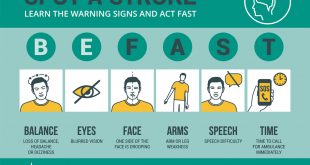By Ian M. Kahane, MD


Most American portion sizes are far too large, and the food items we choose are loaded with sugars to make them taste more desirable. This sugar overload & obscene portion size issue has led to 40% of Americans being overweight. However, help is on the horizon.
There have been many weight loss medications over the years. Some have failed to deliver weight loss or can cause other issues. A new class of medications have emerged that has physicians and their patients very excited for weight loss help.
Diet and exercise are always the preferred natural method to lose weight. A low calorie or ketogenic diet can help people lose weight and keep it off. The key to these “diets” though is not to look at them as diets, but rather lifestyle changes. It is something that you need to follow 350 days or more per year, for the rest of your life.
For those who have failed diets, these new medications, creatively called GLP-1s, are changing the game for people who really struggle to keep weight off. These medications have been out for a long time to treat diabetics, however, these meds have been so effective for weight loss in diabetics that many of them are now moving into the weight loss only treatment arena.
Medications like Trulicity, Victoza, and Ozempic are rebranding to have weight loss only versions. These medications are once weekly injectables that significantly, if not totally, remove one’s appetite. The desire to eat totally goes away thereby causing the individual to lose weight simply because they now eat so little. Furthermore, there is a penalty for overeating: abdominal discomfort and nausea.
These medications teach the patient how to eat more properly. It really changes how the brain approaches food; instead of food being seen as a reward or a comfort, food is now seen only as fuel.
Many of my patients have lost 20-30 pounds in the first month on these medications and continue to lose similar amounts month after month on these medications. I have had several patients lose over 100 pounds in 6 months and then utilize them as maintenance once monthly to keep their weight down.
Occasionally, some people suffer from nausea when they start the first dose, as they over ate the day prior to starting these medications. However, that nausea goes away in everybody so long as they stop overeating. NONE of my patients have persistent nausea, as I just counsel them how to eat more effectively on these meds. The key is to only eat when you’re hungry. For the overwhelming majority of patients who quickly learn to eat smaller portions, these medications are side effect free; the whole key lies with accepting that you can eat under 1000 calories per day and be fine for several months on end. Again, the key is to eat only when you are hungry and to only eat as much as you need for fuel.
Approximately 1-2 weeks after starting these meds, your body readjusts to eating properly and you just start feeling great. Less unnecessary food means better sleep, better focus, less fatigue, and a better libido, among other benefits. If you are struggling to lose weight and have been unsuccessful with diet and exercise alone, talk to your primary care physician about these injectable medications, they can really change your life.
Complete Care
Internal Medicine is a specialized kind of primary care physician field. Internal Medicine Doctors are just like your regular general practitioner or family doctor; however, they are trained to handle more complex and difficult diseases.
Internal Medicine doctors are just as happy treating simple sore throats and completing physicals for work or school, but they are also equipped to handle complex cases from heart disease to complicated autoimmune diseases.
Ian M. Kahane, MD MBA
Dr Kahane has wanted to become a physician since the age of 3. Very few children complete grade school, middle school, high school and beyond with a singular career vision in mind. However, Dr. Kahane never wavered from his dream to become a physician.
From kindergarten straight through to medical school, Dr. Kahane never took any time off to achieve his dream. He completed his medical school at Ross University School of Medicine in 2015 and became an established member of the Bradenton community by becoming a part of the first ever residency class at Blake Medical Center.
While there he served 1 year as Chief Internal Medicine resident. He is proficient in complex patient care, autoimmune diseases, and everyday medical concerns. Dr. Kahane is fluent in both English and Spanish and is excited to join the Complete Care team.
In his spare time Dr Kahane enjoys the beach, water sports, politics, watching football, and spending time with his dog.
Come Experience the Difference at Complete Care.
Contact us at (941) 748-8069. completecaredocs.com
 Southwest Florida's Health and Wellness Magazine Health and Wellness Articles
Southwest Florida's Health and Wellness Magazine Health and Wellness Articles

